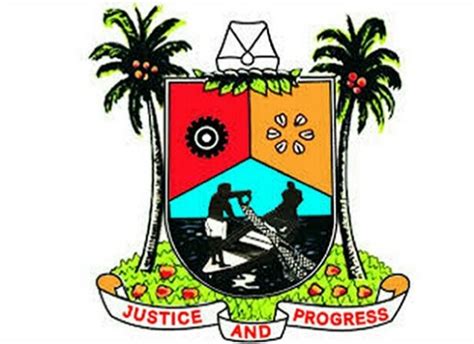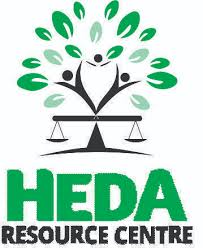- Partners with Federal Ministry of Health, Jhpiego, SWAp, Stakeholders to Address Service Gaps
In a move to boost maternal and newborn survival in Lagos, stakeholders in the health sector converged today, May 15, 2025, for the dissemination of findings from the Comprehensive Emergency Obstetric and Neonatal Care (CEmONC) assessment conducted across public health facilities in Lagos State. The meeting held at the Conference Room of the Folarin Coker Staff Clinic, Alausa-Ikeja, attracted high-level participation from policymakers, health facility managers, development partners, and technical experts.
The CEmONC assessment, spearheaded by the Federal Ministry of Health with support from Jhpiego, was executed in two critical phases: equipment availability and functionality, and skills competency among frontline health workers. The evaluation covered maternal and child health units, theatres, health records, and facility maintenance departments, offering a comprehensive look into the operational capabilities of Lagos health facilities.
Delivering the welcome address, Dr. (Mrs) Kemi Ogunyemi, Special Adviser to the Governor on Health, expressed deep appreciation for the assessment, describing it as an important guide for policy decisions. She highlighted that while Lagos has made notable progress in maternal care through free antenatal and delivery services, the health system must be strengthened further to improve emergency response and outcomes.
She acknowledged the Governor’s unwavering support for maternal health, stating, “Mr. Governor always puts his money where his mouth is. From family planning to LASAMBUS upgrades, we are continuously investing in emergency services. But we need informed assessments like this to shape our next steps.”
The Special Adviser emphasised that the report was not a condemnation of existing training structures but a mirror reflecting present realities. “Assessments show what we know, not what we intended. They help us confront hard truths,” she added, stressing the importance of culture-sensitive health strategies to combat preference for traditional birth attendants despite free care offerings.
She outlined several critical gaps identified in the findings, including inadequate specialist staffing, insufficient orientation for new hires, and maintenance delays. “Having equipment without trained personnel is dangerous,” she warned. She further called for rationalisation of services to optimise resources and ensure that hospitals do not duplicate services unnecessarily.
Dr. Ogunyemi urged medical directors to let the CEmONC findings inform their budget priorities and infrastructure demands. She noted that facilities failing to meet CEmONC standards might have services suspended to protect lives. “We must never allow poor-quality care to continue just because the doors are open,” she stated.
Speaking on future infrastructure planning, she assured that new projects such as Massey Children’s Hospital, Ojo General Hospital and Ibeju-Lekki General Hospital would embed lessons from the assessment. She concluded by calling for improved staff attitudes, applauding the assessment team’s diligence, and pledging the state’s commitment to quality maternal and newborn care.
Also speaking at the meeting, Communication & Innovation Lead at the SWAp Coordination Office in Abuja, Dr. Lawal Bakare contextualized the assessment within national health reform priorities, particularly the NHSRII Compact signed in 2023 by President Bola Ahmed Tinubu, state governors, and development partners.
Dr. Bakare explained that the national compact mandates that every Local Government Area (LGA) must have at least one functional secondary health facility. “To achieve this, we must know what we have and what we lack,” he said, linking the CEmONC assessments to several Disbursement Linked Indicators (DLIs) under the HOPE and MAMII projects.
He highlighted the role of USAID and Jhpiego in executing the assessments and announced the handover of four critical reports to Lagos State: the Service Delivery Report, Infrastructure Narrative, Architectural Drawings, and a costed Bill of Quantities. “These tools will help the state act swiftly to bridge identified gaps,” he said.
Reiterating the federal government’s commitment to collaborative implementation, Dr. Bakare stated, “This is not Lagos’ burden alone; it’s a shared health sector challenge. The Coordinating Minister will work with the Governors’ Forum to establish a unified infrastructure partnership between federal and state governments.”
He concluded by reaffirming the goal of equitable access to quality maternal and newborn services across Nigeria, regardless of socioeconomic status or geographic location. “We envision a Nigeria where no woman dies giving life, and no newborn loses their first breath to system failure,” he declared.
The Chief of Party at Jhpiego, Dr. Emmanuel Atuma, commended the Lagos State Government for successfully hosting the South-West training session for the Comprehensive Emergency Obstetric and Newborn Care (CEmONC) Assessment. He revealed that the USAID-funded Jhpiego, in collaboration with the Federal Ministry of Health, the SWAP office, and the Nigeria Governors’ Forum, provided technical support to conduct the assessment across Nigeria’s 774 LGAs.
According to Dr. Atuma, this is the first time in over a decade that such a nationwide assessment is being conducted, and Nigeria is the first country to deploy the updated Emergency Obstetric and Newborn Care (EmONC) tool for this process. He emphasised that the assessment was not a fault-finding mission but an exercise to evaluate readiness and identify critical gaps in the delivery of maternal and newborn care services.
Noting that the assessment covered infrastructure, equipment, human resources, referral systems, and healthcare worker competencies, Dr. Atuma praised the role of Lagos State’s Monitoring and Evaluation, Maternal and Child Health, and clinical officers who conducted the two-phase assessment. He also highlighted the generation of a costed Bill of Quantities to guide future investments in improving healthcare infrastructure and power supply in critical units across assessed facilities.
Earlier in her opening remarks, Director of Health Care Planning, Research, and Statistics at the Lagos State Ministry of Health, Dr. Jumoke Oyenuga, emphasized the importance of evidence-based data in driving sustainable policy reforms and strengthening emergency obstetric and newborn care.
She acknowledged the collaborative effort of development partners and stakeholders in supporting the state’s participation in the nationwide assessment, noting that one facility was assessed per Local Government Area in Lagos, covering both infrastructure and the competencies of healthcare workers. The findings, she explained, will help ensure that healthcare providers are adequately skilled and equipped to offer quality care to pregnant women and newborns in emergency situations.
She also highlighted the support of national health financing schemes such as the NHIA, which provides coverage for vulnerable women without health insurance. Dr. Oyenuga expressed optimism that the shared results from the assessment will inform planning and decision-making while ensuring that no woman is turned away due to financial constraints. She concluded by reaffirming Lagos State’s readiness to continue supporting federal efforts in tackling maternal and newborn mortality.
Representative of the State Coordinator of the World Health Organisation (WHO) Lagos Office, Dr. Opeyemi Ogundimu, congratulated the Lagos State Government on the successful execution and reporting of the CEmONC assessment. He described the exercise as a significant milestone that aligns with WHO’s support to the state in areas such as immunisation, surveillance, and maternal health.
Dr. Ogundimu emphasized that the findings from the assessment are timely and essential for driving evidence-based reforms tailored to the specific needs of Lagos State. He noted that regional variations in healthcare delivery mean that local data must be used to craft context-specific solutions that improve maternal and newborn health outcomes effectively.
He expressed confidence that the report will reveal critical gaps and offer actionable recommendations that will enhance emergency obstetric and newborn care services. Dr. Ogundimu called on stakeholders to ensure the recommendations are implemented and integrated into planning frameworks, thereby reinforcing the state’s leadership in maternal and child health initiatives.
The event served not only to unveil findings but also to galvanise action and renew commitments across multiple levels of the health system. As stakeholders filed out, one message resonated clearly: data must drive action, and action must save lives.







